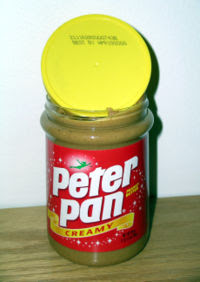Eat at Your Own Risk?

The tragedy of tainted pet food is only one small part of our disastrous and unsafe food supply picture -- and it is not pretty. According to a recent Associated Press article, nearly 99 percent of food from other countries is not inspected by the FDA or USDA. Keep in mind this is food intended for humans as well as animals. And of the miniscule 1.3% that is tested, government agencies regularly find unhealthy levels of contamination, including everything from pesticides to salmonella. According to the report, food from China is especially likely to unsafe, so whenever possible check labels for country of origin information.
Furthermore, it's likely that the tainted ingredients that sickened and killed pets are in human foods, as well, according to another report in the International Herald Tribune. From the article:
"... the agency [FDA] will begin domestic tests of corn gluten, corn meal, soy protein, rice bran, rice protein concentrate, and wheat gluten imported from China to determine if those products are also tainted with industrial chemicals. Such ingredients are used in breakfast cereal, pizza dough, baby formula, and protein shakes, but Dr. David Acheson, chief medical officer at the food and Drug Administration's Center for Food Safety and Applied Nutrition, said there was "no evidence" that any of those human foods contained contaminated ingredients."
No evidence? When only 1.3% of all imported food is being tested, that's not very reassuring. Of course, it may be unfair to single out imports when the FDA has been allowing food on grocery store shelves from domestic manufacturers with known contamination issues for years. During testimony before Congress earlier this week, we learned that the FDA has long known about spinach and meat tainted with E. coli and salmonella-laced peanut butter (pictured above, recalled Peter Pan peanut butter with product code 2111).
What can consumers do about the situation? For starters, stay informed. Check the news daily, because these stories do make headlines. Second, contact your representatives in Congress and let them know that the FDA, an agency that has been gutted in recent years, needs the budget and staff to oversee food safety properly. This is no longer a pet food issue -- it's something that affects everyone who eats.
Labels: FDA, safe food supply, tainted food



